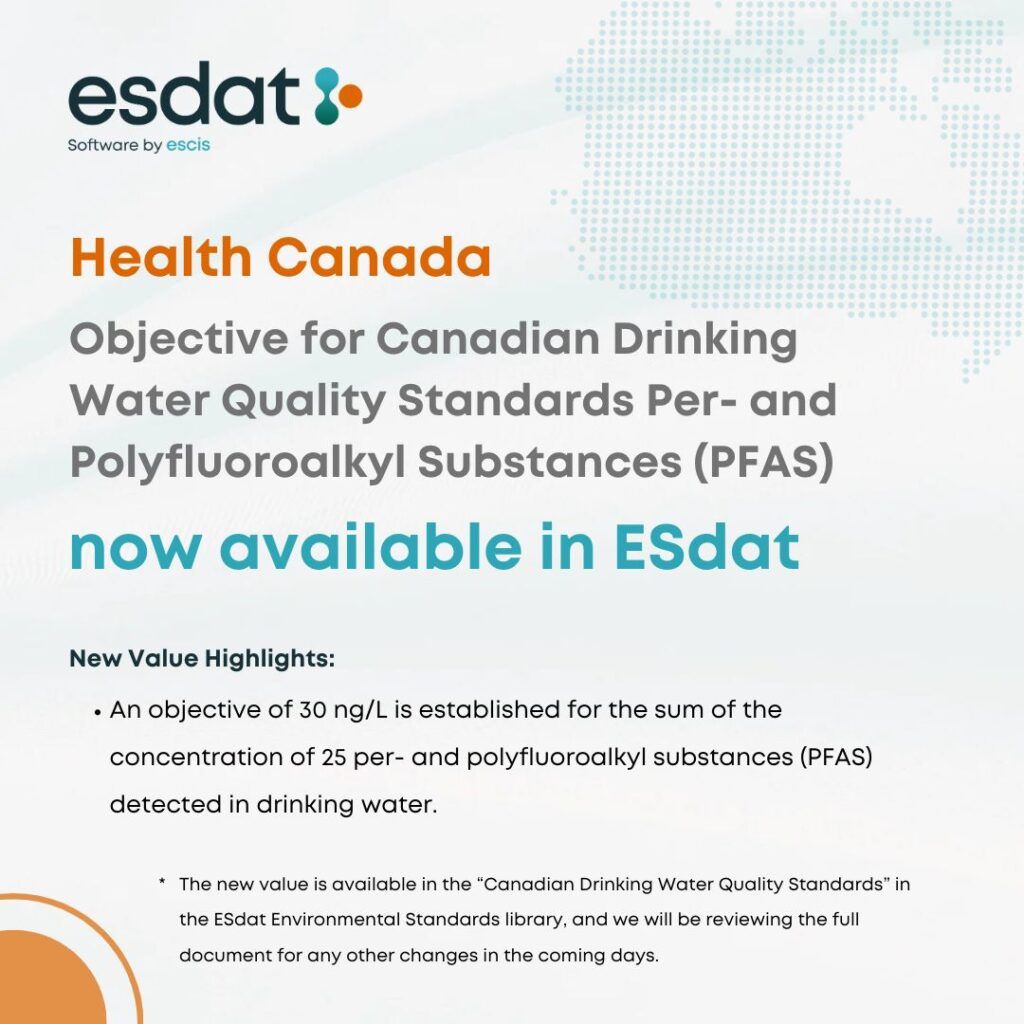Health Canada has published the Objective for Canadian Drinking Water Quality Standards Per- and Polyfluoroalkyl Substances. To reduce exposure to drinking water, an objective of 30 ng/L is established for the sum of the concentration of 25 per- and polyfluoroalkyl substances (PFAS) detected in drinking water.
The new value is available in the “Canadian Drinking Water Quality Standards” in the ESdat Environmental Standards library, and we will be reviewing the entire document for any other changes in the coming days. https://esdat.net/environmental-standards/

Canadian Drinking Water Standards
The Guidelines for Canadian Drinking Water Quality, developed by Health Canada in collaboration with the Federal-Provincial-Territorial Committee on Drinking Water (CDW) and other federal bodies, are comprehensive in their coverage. They are based on scientific research and are updated regularly, covering health effects, aesthetic effects, and operational considerations. This thoroughness provides maximum acceptable concentrations or treatment goals for various contaminants in drinking water, reassuring the audience about the guidelines’ reliability.
To establish a guideline, the contaminant must meet specific criteria: it must pose a health risk, be commonly found in Canadian water supplies, and be present at levels significant to human health. Health Canada does not establish guidance documents instead of numerical guidelines if a contaminant doesn’t meet these criteria.
The guidelines are periodically reviewed and updated, with each parameter’s publication and reaffirmation dates noted. https://www.canada.ca/en/health-canada/services/environmental-workplace-health/reports-publications/water-quality/guidelines-canadian-drinking-water-quality-summary-table.html






